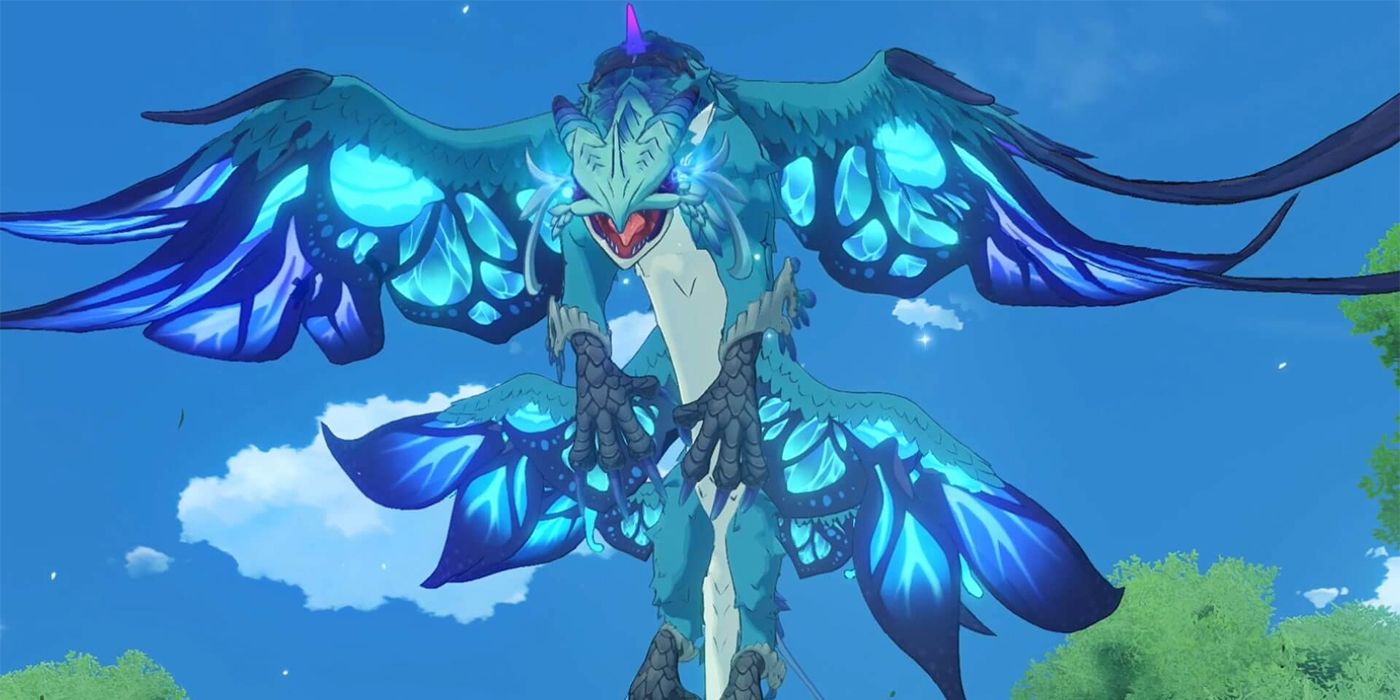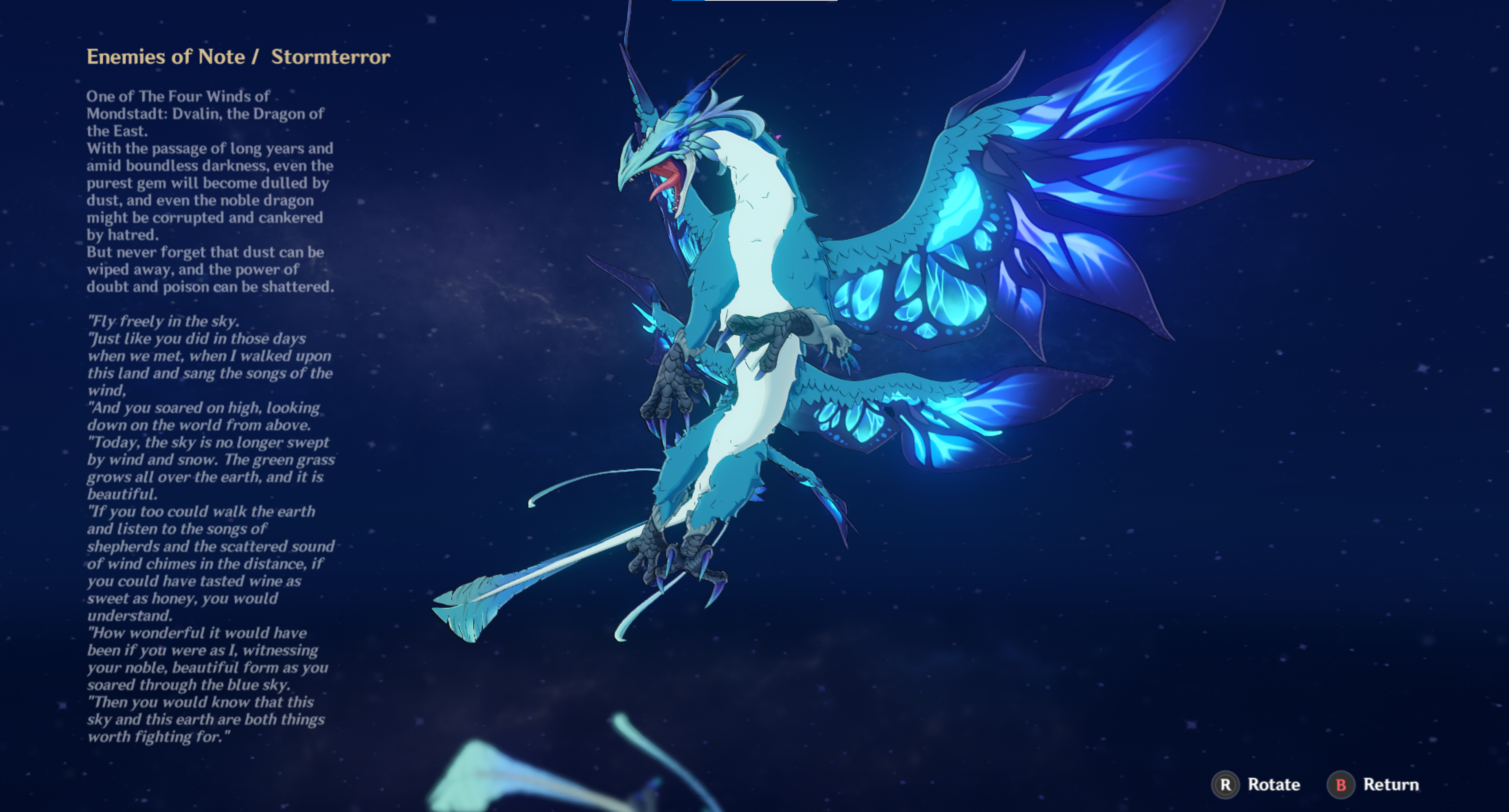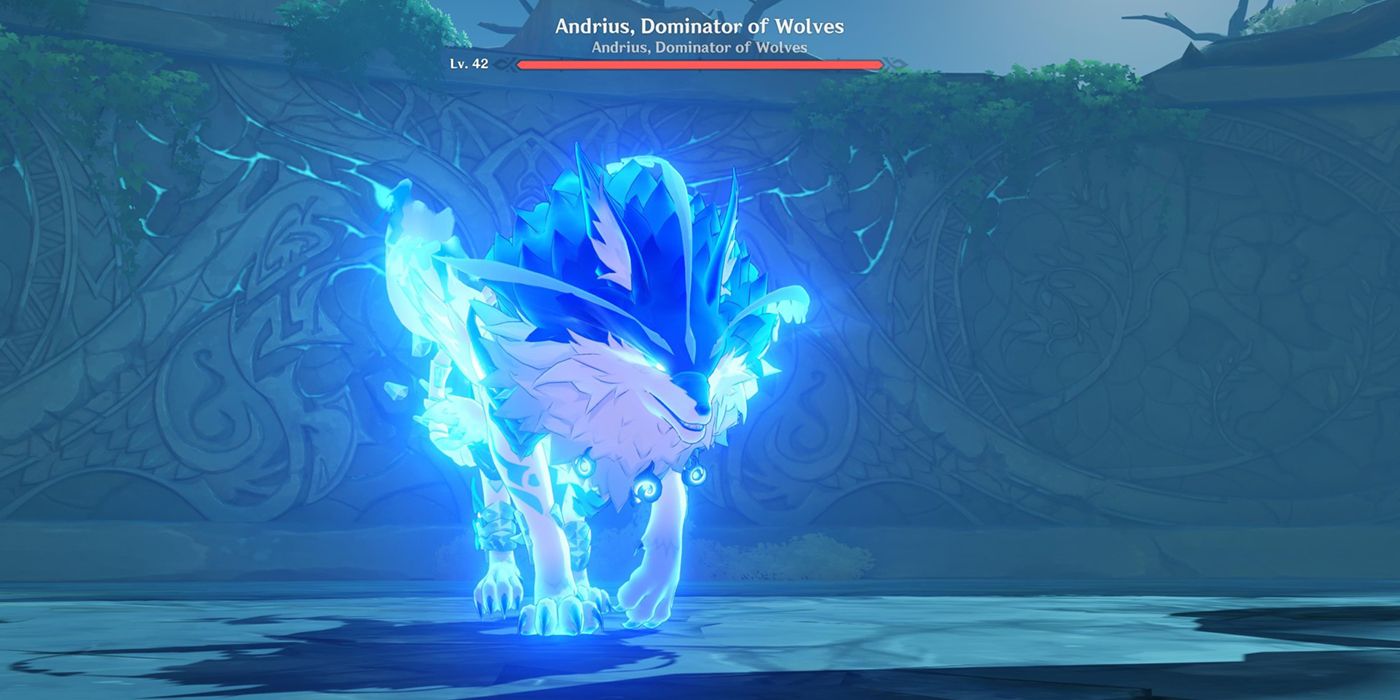
Early in the prologue of Genshin Impact, when players first start digging into Stormterror's history, they will hear various members of the Knights of Favonius make reference to the Four Winds of Mondstadt. The quest neatly summarizes these entities as Mondstadt's sacred protectors, endorsed by the current Anemo Archon, Barbatos, who players later discover to be Venti. For the purposes of general narrative progression, that explanation works just fine. But there is a much richer tale to be had, about the nature of the Winds, the founding of modern Mondstadt, and the role of certain characters in the present.
The Four Winds were not recognized as a team until Vennessa, the founder and first leader of the Knights of Favonius, ascended to the realm of Celestia where she was recognized as the Falcon of the West. Vennessa is one of only two characters in the Genshin Impact universe who is known to have ascended to Celestia, which is like achieving a form of godhood that is comparable to, but lesser than, the power of the Archons. Vennessa's story, which is relayed in part with the in-game books, is also told in detail in Mihoyo's Genshin Impact manga on Webtoon.
RELATED: Genshin Impact: Promo Codes for Free Stuff (February 2021)
To keep things manageably brief, Vennessa is a nomad-turned-slave, turned-gladiator, turned-revolutionary leader of ancient Mondstadt. She and her people are forced into arena combat against hopeless odds, Venti tips the scales in her favor, and together they overthrow Mondstadt's corrupt aristocracy. Easy as elemental tic-tac-toe. At this point, Vennessa founds the Knights of Favonius, and is known as the Dandelion Knight. Or, due to clever translation homonyms, the Lionstooth Knight. This mantle is later known as one of the Four Winds: the Lion of the South.

Vennessa is the only entity in Teyvat to ever occupy the position of two of the Four Winds, though it was not until her ascension that the Four Winds were even considered titles by Venti. Vennessa essentially invented the Four Winds when she became the Falcon of the West, and her successor, became the new Lion of the South. But what about the other two members?
Mihoyo articulates the history of Dvalin in great detail in-game, which players will learn on their way to confront the Dragon of the East, now known as Stormterror. Dvalin was actually the oldest of all the entities in the Four Winds, and he held onto his title longer than any other member of the quartet. A dragon who was feared and persecuted by humans, Dvalin merely wanted to be understood, and forged a friendship with Venti, who taught him human speech.
Roughly one hundred years prior to the events of Genshin Impact, Dvalin ingested the blood of Durin while protecting the city of Mondstadt. Sadly, this sent him into a slumber, and when he awakened, the corrupted blood had turned him into Stormterror.

The last of the Four Winds currently "resides" in Wolvendom. Though Andrius, the Dominator of Wolves, is long deceased, his spirit still thrives in the forests of Mondstadt where the wolfhook grows. Just as the other title-bearers protect the city, Andrius defends the natural splendor of Mondstadt. Even though he is currently a ghost, when there is sufficient call for it, Andrius can conjure a body of wind and ice. He then obtains the power to subject potential threats to the same punishments he exhibits in the Wolf of the North Challenge.
It is also important to note, the current leader of the Knights of Favonius is always the Lion of the South. Which means that the acting grandmaster, Jean, is the current Lion in the South.
Genshin Impact is available now for PC, PlayStation 4 and 5, and mobile devices.

